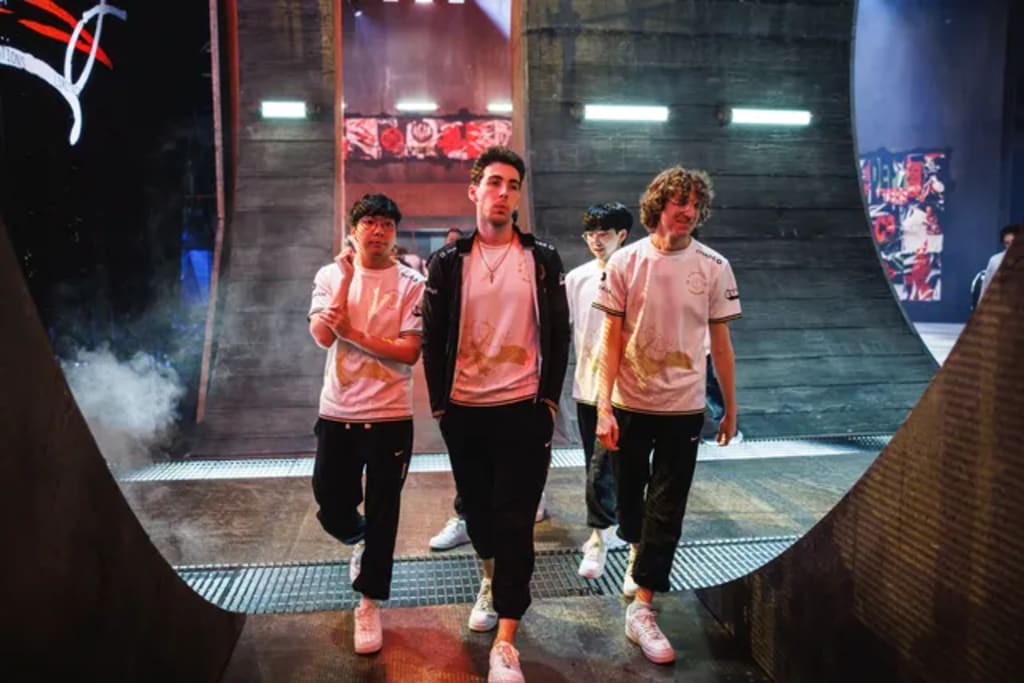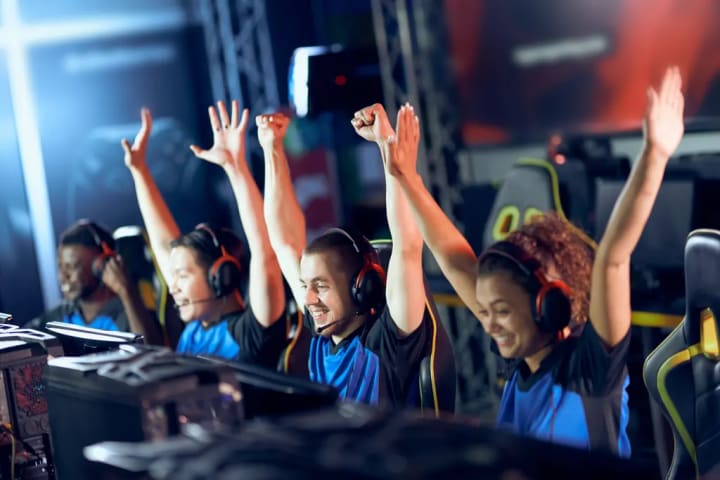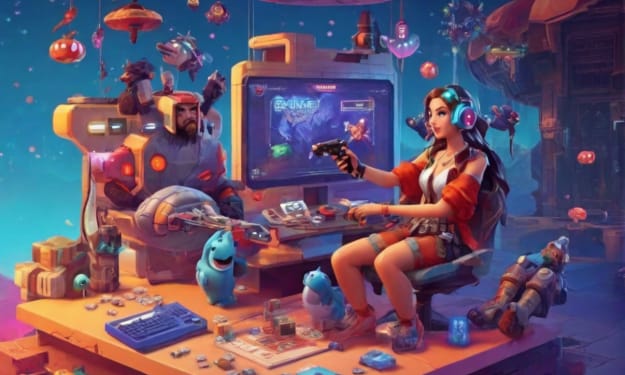LCS Player Walkout: A Crisis in Esports or a Sign of Progress?
LCS Player Walkout: Exposing the Turning Point in Esports: A Crisis or an Evolutionary Leap?

The competitive video game industry known as esports has been growing in notoriety and popularity over the past few years. With millions of viewers and top-tier professional players participating, the LCS (League of Legends Championship Series) is one of the most well-known esports leagues worldwide. Player walkouts, a recent occurrence in the LCS scene, have stirred debate and controversy.
The state of esports and whether these incidents signal a crisis or forward movement have been questioned in light of players' refusal to take part in matches or demands for league change. We'll examine the causes of player walkouts in this post, look at how they affect the LCS, and analyze what they mean for esports' future.
I. The Rise of Player Empowerment in Esports
1.1 The Evolution of the Esports Industry
Esports has grown from a small-scale pastime to a multi-billion dollar industry, and as a result of this expansion, players are beginning to understand their importance and power in the ecosystem. Players in traditional sports have always had the ability to bargain for contracts, make trade demands, and express displeasure with various parts of their careers. In a similar vein, participants in esports are starting to stand up for their rights and demand changes to their working environments, pay scales, and general welfare.
1.2 The Power of Social Media and Player Activism
Esports players now have a powerful forum to air their issues and express their opinions to a huge audience on social media sites like Reddit and Twitter. Players now feel more empowered to speak out against perceived injustices in the industry thanks to their improved capacity to connect with fans and other athletes. Players now use walkouts as one of the most prominent platforms from which to express their opinions and promote a cause.
II. Causes of LCS Player Walkouts
2.1 Financial Disparities and Compensation Issues
In the LCS, player walkouts are frequently attributed to monetary inequality and a dislike of the pay scales. While top-tier athletes and teams can make significant sums of money, people on lower-tier teams frequently endure more difficult conditions due to lesser pay and fewer prospects for financial stability. Players can use walkouts as a tool to demand revenue-sharing plans that put the welfare of all players first and more equitable pay and benefits.
2.2 Lack of Player Representation and Governance
Players' perceptions of a lack of player influence and representation in LCS decision-making procedures are another prominent source of complaint. Players claim that their opinions are not sufficiently taken into consideration when making decisions about league policies, scheduling, and format changes. Players plan to stage walkouts in order to raise awareness of this problem and demand more player input into the direction that esports will go.
2.3 Work-Life Balance and Mental Health Concerns
It takes a significant commitment of time and effort to compete at the highest level in esports. It can be detrimental to a player's mental and physical health to spend a lot of time practicing and getting ready for games. Schedule demands and a lack of resources for addressing mental health issues may be the causes of walkouts. The usage of walkouts by athletes can be used to promote greater work-life balance and better mental health care options.

III. Impact on the LCS and Esports Community
3.1 Increased Awareness and Discourse
Both the esports community and the general public have given player walkouts a lot of attention. They have spurred significant discussions about issues like player rights, working conditions, and the need for a more sustainable esports industry. Walkouts have forced spectators, organizations, and league officials to reconsider their positions on these problems and think about potential remedies to build a more equal and player-focused environment.
3.2 Potential Disruption and Viewer Engagement (continued)
Possess the capacity to pique viewers' interest and evoke drama and anticipation. Walkouts can generate media interest and attention, drawing in both ardent supporters and unsuspecting new viewers. Increased viewership, interest from sponsors, and general expansion for the esports business can all result from this increased participation.
3.3 Impact on League Governance and Policies
Players can put pressure on league administrators and regulatory bodies by walking out of games to voice their concerns. These demonstrations are public in character, which draws attention to the LCS's desire for openness, justice, and better working conditions. Leagues may therefore be forced to review their governance frameworks, involve players in decision-making, and make adjustments in line with the requests made during walkouts.
IV. Evaluating Walkouts: Crisis or Progress?
4.1 Crisis Perspective: Disruption and Instability
The esports ecosystem may be unstable as a result of player walkouts, according to a crisis perspective. Team chemistry can be impacted, the integrity of the competition is impacted, and unhappy fans might result from players leaving games abruptly. The league's administrators, sponsors, and team management may face difficulties as a result of frequent walkouts that give the impression that the league is in disarray. The crisis viewpoint places an emphasis on the necessity for stability, respect for contractual responsibilities, and sustaining the reputation of esports as a professional sector.
4.2 Progress Perspective: Advocacy and Positive Change
Player walkouts, on the other hand, are seen by proponents of progress as a sign of advancement and positive change in the esports sector. They stand for players' willingness to stand up for their rights, promote fairness, and support the expansion of esports as a viable career. In the long run, walkouts can help the entire esports community as well as the players themselves by fostering meaningful discussion, policy change, and increased player well-being.

V. The Future of Player Walkouts and Esports
5.1 Balancing Player Empowerment and Competitive Stability
In esports, the future of player walkouts will depend on striking a careful balance between player empowerment and preserving the stability and integrity of competitive play. The welfare of all parties must be taken into account while developing fair policies that preserve the sport's competitiveness. Leagues and teams must address player concerns, create open lines of communication, and collaborate to put these policies into place.
5.2 Professionalization and Player Associations
The creation of player unions and groups might become more common as the esports sector continues to develop as a business. These associations can give participants a forum on which to bargain jointly on contracts, resolve disputes, and take part in decision-making. A more sustainable and inclusive workplace for everyone involved can be created by professionalization efforts that ensure player concerns are heard and addressed.
Finally, A contentious discussion regarding the state of esports and the importance of player empowerment in the sector has been sparked by the incidence of player walkouts in the LCS. While some regard walkouts as a crisis that threatens the stability and competitive integrity of esports, others see them as a sign of development that calls for stronger player rights and higher industry standards. The LCS and the broader esports community have had substantial effects as a result of walkouts, including increased awareness, conversation, and the possibility of league governance and policy changes. It will be important to strike a balance between player empowerment and stable competition in order to answer players' concerns while preserving the sport's integrity in the future of walkouts and esports.
The agency and influence of players must be acknowledged as esports develops in order to build a player-centric ecosystem that will be sustainable and beneficial for the development of competitive video games in the future.
About the Creator
Ahamed Thousif
🌟 Welcome to the realm of exploration, where communities come alive through the power of words! 📚✨ Join me as we embark on a journey to discover the vibrant tapestry of stories and Poems.
VISIT - "MY FOOD BLOG"






Comments
There are no comments for this story
Be the first to respond and start the conversation.